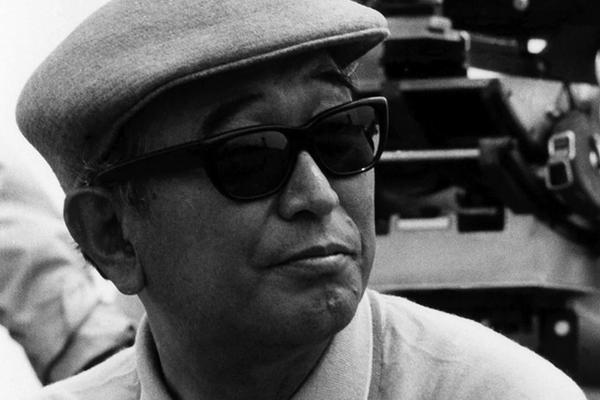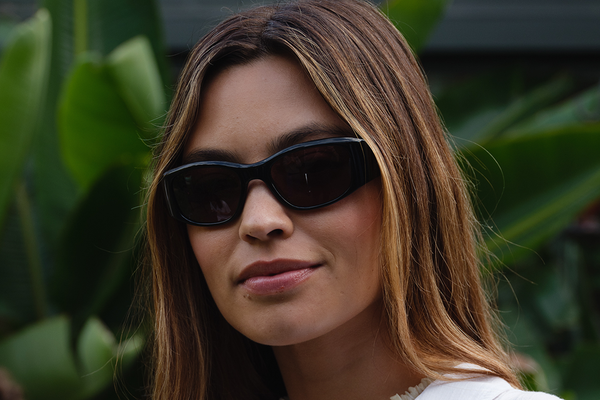On a beige and brown tinted stretch of Long Beach Blvd between the 91 freeway and Rosecrans, tucked tightly amongst two faded pastel apartment buildings atop the bones of an old motel car park lies the Compton Community Garden - a hub for community regeneration & urban farming in South LA.
Community gardens have long been heralded by ecologists, social critics, and thinkers throughout human history as the focal point of true social and ecological revolution. The idea is simple: in an era of dwindling resources, faltering environmental equilibrium & alarmingly limited access to green spaces, especially in hyper-developed cities like Los Angeles, those who learn to sustain themselves through urban farming and reintegration into the natural world are at the advantage.
In Compton, a crew of diverse young leaders from across Los Angeles have spotted this brief window of time within which change - limitless in nature - is possible. Urgency and timeliness are a factor.
Collectively, they have coalesced around the Compton Community Garden as a home base; a tactile, living, breathing outdoor garden built from the ground up with the intent purpose of offering to South LA’s largely Black and Brown communities a safe space to reaffirm our innate belonging to the natural world - a starting point to the development of a new agriculture of farmer-citizens and citizen-farmers, community-centric, democratic, diverse, owned by all. As the world struggles to adapt, Compton is creating the framework for a new, ecological world.
Summer afternoons in this part of South LA are brutal, especially these days. I should know - I came up (and still live) in North Long Beach, an equally under-resourced neighborhood just 3 minutes south of Compton Community Garden. I met up with the crew at noon under the garden’s vine-wrapped pergola to deconstruct some lingering ideas from our previous conversation. We discussed the merits of cross-cultural exchange within the community garden and the CDFA’s “Specialty Crop Grant Program,” through which urban farmers, ranchers, community organizations, tribes, and schools could ostensibly receive a state-sponsored stipend by growing intensively cultivated crops such as fruits and vegetables, tree nuts, dried fruits, floriculture and nursery crops.
The point is vehemently brought up by Temu Bey, a young Compton leader, that the CDFA (California Department of Food & Agriculture) and USDA federal programs regularly end fiscal years with a budgetary surplus; that is, unused dollars up for grabs for individuals and groups who foray into horticulture and urban farming. I raised concerns that many of these programs required intensive applications and grant-writing, a skillset which many urban farmers, especially in Compton, are often unequipped with due to lack of educational resources and, quite frankly, the most scarce resource, time.
Temu suggested that it’s the explicit role of community leaders to guide urban farmers to these opportunities.
Before I could retort, the conversation erupted into an overlapping series of informed opinions and social criticisms. The dialogue became tangential, though I found interesting the way topics of discussion so organically interweaved between ecology, culture, politics, art, skateboarding, robotics, and rap. This is the very profound potentiality of community gardens; beyond a place to grow and feed, they are a safe space to share ideas and politics and cultures - a home to exercise mental, intellectual, and spiritual well-being through ecological thought & cultural exchange. After all, when boiled down, the single concentric idea that bonds us all is nature and our duty to it.

Here’s the cast of characters at Compton Community Garden:
Temu Asyr Bey: A Compton native, Temu has had a hand in building the CCG from the ground up. Horticulturist, artist, thinker, author, and plant-based chef, Temu is the engine that drives this garden and community. When discussing topics like eco-consciousness and empowering his community, Temu’s eyes light up. “This ain’t no food desert,” he proclaims, gesturing at the backdrop of the city of Compton just beyond the garden gates. In fact, “Compton has the most ideal weather for organic gardening, yet we’re still considered a food desert? How did we get here? Is this by accident? We have the chance to change the narrative & restore balance - to heal ourselves, feed ourselves, employ ourselves, and build wealth collectively.” Temu continues to educate through his company Holistic Divine Innovations, which he operates out of Compton Community Garden.
Keira Adams: The glue to the entire CCG project. Kind, patient, soft-spoken, Keira brings a humanity and groundedness to everything she touches. As my guide through the Compton garden on my first ever visit, Keira has put me on game to both the technical and spiritual aspects of organic gardening, and how to magnify the two concepts on the path to self-betterment. As of recent, she is working with children in Inglewood to encourage and inspire tomorrow’s urban farmers and ecologists, utilizing Compton Community Garden as a home base for teaching and exploring.
Luther ‘Lu’ Keith III: I met Lu nearly 5 years ago on-set at Magasin, a shuttered menswear shop well ahead of its time. Lu was modeling; I was on photography - we clicked immediately. At the time, he was running Sweetgreen’s research and development program, innovating new ways of using fresh produce in the context of a cutting-edge kitchen. Unbeknownst to me at the time, Lu was also setting the framework for Compton Community Garden with his bare hands. To reconnect with Lu years down the line feels cosmic - his confidence, energy, passion, and unmatched knowledge of how to make best use of our natural resources is impressive. Compton is in good hands with Lu at the helm; he is lovingly raising his son to become a future leader in South LA and beyond.
Justin Brown: A man of few words but wisdom & intelligence beyond his years, Justin is a product of Compton Community Garden’s rigorous organic gardening and horticulture programs. One of a handful of CCG’s day-one growers, his encyclopedia-like knowledge of the ever evolving garden is astounding. Any technical questions regarding organic growing are deferred to Justin.
Dr. Sheridan Ross: The OG. A retired doctor of neurology, founder of 16 community gardens (and counting), and expert organic gardener. Under the tutelage of Dr. Ross, an experimental & determined vanguard of young growers are leading for change in Compton from the inside, out. When Dr. Ross shares his wisdom and master gardening techniques, one feels compelled to listen carefully. I came across Dr. Ross in the garden one day (a rare occurrence) - we ate fresh tomatoes from the vine as he described why red fresh-picked tomatoes taste so differently than store-bought tomatoes (they are picked green and gassed with ethylene so that they turn red). He made sure to emphasize that plants are social and must be treated as such, as well as how to “awaken” still soil with egg shells and banana peels.
Upon meeting up with the CCG team, I was pleased to cross paths with two old friends from deep in my past - an experience that so succinctly reaffirms my confidence in the role of this community garden as a catalyst for human-to-human engagement. The photographer, a talented young skater/shop head (word to 18 East)/creative named D’Andre, whom I’d met in New York years ago in a very different context, was in deep conversation with another gentleman who I recognized instantaneously as Lu, a friend from a vastly different part of my life. Lu was breaking down the end-of-summer crops, and which would be the ripest for the picking that particular day (the greens, squash, and cucumbers were particularly fresh).
Together, with Lu & Keira as our guides, we chewed on fresh chocolate mint and sage, picked blueberries and summer greens from the vine, shot photos and shared laughs. I could sense D’Andre easing into the comfort of the garden and refueling his roots with nature, an experience that is often too far removed from megalopolises like his hometown of New York City. Between the sunlight, greenery, dodging bumblebees and occasional bantering with joyous community members, all within the safe space of Compton’s garden, we couldn’t help but smile. As D’Andre exclaimed before he left, “this is a beautiful place.”
It really is.
This is no ordinary community garden. There is no pay-per-plot structure; in fact, “community” garden is taken quite literally. Each plot, affectionately tagged with words of affirmation (“Rebirth,” “Family”), belongs wholly and truly, to the Compton community.

Ecological counter-institutions like Compton Community Garden are necessary if we hope to reestab- lish our bond between nature and community, culture and society. At a hyper-localized level, Compton Community Garden is a blueprint for gardens to be built every few blocks, starting in Black, Brown, and indigenous communities and stemming outwards. By By weaving ideas and concepts of great ecological thinkers like Bookchin & Roszak, indigenous growing techniques (Gabreliño Tongva people grew & foraged for generations on this very land) with a grounded cultural understanding, CCG is laying a solid foun- dation for self-sustainability in Compton for today, tomorrow, and the next generation.
I leave you with this quote from the late great Airmiess Joseph Asghedom, a hero to us Angelenos, who the world came to know as Nipsey Hussle:
“Still somehow I understood that I could make the seed grow
And that one day that tree will bear fruit to feed my people
That one day is upon us, grab your fork it's time to eat bro.”
---
Recommended research:
- Organic Gardening Basics with Dr. Sheridan Ross


